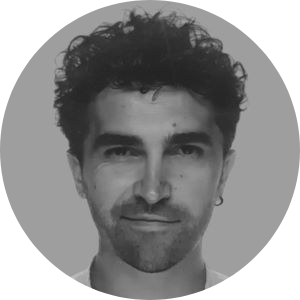Curriculum Vitae
Ismail Bayram works as a post-doctoral researcher at CeTI in multi-sensory behavioral & design-based experiments to investigate the benefits & constraints of using sensors/actuators in virtual & augmented reality technologies for promoting sensory-motor skill acquisition & development. Ismail particularly focuses on the development of high-level sporting skills. As means to serve this purpose, he uses several experimental methods including Motion Capture (MoCap), Electromyography (EMG) and other neuromechanical measures such as eye tracking, plantar pressure systems and isokinetic dynamometers. Until recently, Ismail has been working as an R&D Coordinator in a start-up company developing VR technologies to test and train the cognitive abilities of both recreational and professional athletes. Ismail achieved his Ph.D. (in Sports Biomechanics) at Anadolu University, Türkiye and he conducted his studies partly at the Institute for Modelling and Simulation of Biomechanical Systems at Stuttgart University, Germany. His Master’s (in Neural Training) at Anadolu University, Türkiye as well during which he conducted studies partly at the University of Rome “Foro Italico”, Italy.
Projects/Cooperation within CeTI you are involved in:
• Multisensory behavioral experiments together with other CeTI-teams (TP1, TP2, U1)
• Design-based research in order to investigate the benefits and constraints of using sensors/actuators
• Virtual (VR) and Augmented (AR) Reality technologies for promoting sensory-motor skill acquisition & development.
What is your research interest?
My research mainly focuses on Sport Science, Human Movement and Motor Control, with a specific emphasis on performance assessment and neuro-mechanic evaluation of sport-specific skills. To do so, I combine traditional surface Electromyography with Motion Capture in mainly tennis and soccer. Lately, my research interests evolved also for improving the cognitive performance of athletes using various testing and training tools such as virtual/augmented reality and eye tracking. In CeTI, my focus will be on accelerating the skill-learning process by using AR/VR tools and by providing haptic feedback.
What motivated you to do what you do today?
As a very active child from an early age, I have always been deeply curious about how the human nervous system regulates complex movement patterns.
What do you find particularly interesting about CeTI?
The idea of a Tactile Internet, which aims to provide ultra-low latency and high reliability in communication and control, has the potential to revolutionize various fields in the near future. It can enable real-time interaction between humans and machines, remote control of robotic systems, and advancements in skill learning via VR/AR systems. And, I am overflowing with immense excitement for working in this beehive, CeTI.
To which question have you not found an answer lately?
How to use AR/VR and Tactile Internet technologies effectively (i) to accelerate the skill learning process, and (ii) to correct technical sporting skills in order to prevent overuse injuries.
How do you spend your free time?
I am an active distance runner holding a Personal Best Marathon time of 3:20:46 (2020, Istanbul). I want to improve my PB in this year’s Berlin Marathon. I am maintaining an active lifestyle by performing different sports such as biking, swimming, SCUBA diving, and tennis.



